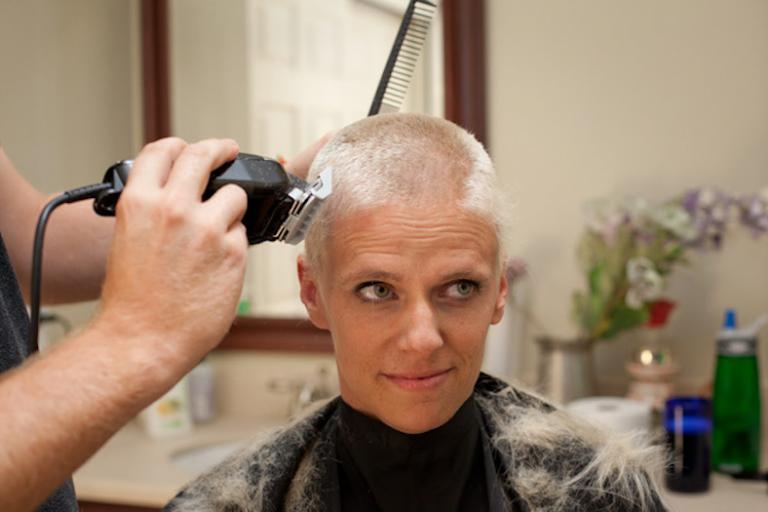
Her blog was called “Mundane Faithfulness,” but there was nothing mundane about it. Not ever, really, and especially not at the end.
Kara Tippetts lived life large before being diagnosed with stage four breast cancer. She was the wife of a pastor and church planter, mom to four children and a popular mommy blogger. Friends say that she had a talent for making everyone she met feel like they were the most important person in her life.
Even when she found out that she had cancer—and that that cancer would likely kill her—she had more life and vibrancy than most of us. She shot to national fame after writing a letter to another woman with breast cancer—a woman who moved to Oregon so she could, as she said, “die with dignity.” Tippetts encouraged her to live on. “Hastening death was never what God intended,” she wrote. “He does meet us with His beautiful grace.”
She confronted her cancer with refreshing, disarming and often painful honesty. She authored three books after her diagnosis, spoke around the country and, most importantly, gave her family elements that most of us take for granted: time. Love. Herself.
“Cancer was this gift that exposed to us what’s important and what’s valuable,” Tippetts says in The Long Goodbye, a documentary about the last months of her life. “Parenting with kindness. Loving your husband. Living well.”
The Long Goodbye will be coming out on video this Friday, March 22—four years to the day that Tippetts died. But even as the cameras were rolling, there was little doubt as to how this story would end. She feels herself slipping away, inch by inch. “I’m not afraid of dying,” she tells us. “I just don’t want to go.”
I’m not going to lie to you: The Long Goodbye is a hard movie to watch. I never met Tippetts, but I feel like I do through the doc. And to watch her slip away—to grow skinnier, grow weaker, cry—that’s painful. I saw her “dying by degrees,” as she says. Day by day, bit by bit, it seemed like God was calling part of her home—leaving behind only shadows and memories of what was once there.
And yet, there’s a beauty in it, too. In the movie, she pushes through. Still talking. Still laughing. Still loving her family. Still suffering, strangely, for us.
“I want to be able to share this story that suffering isn’t a mistake,” Kara says. “And it isn’t the absence of God’s goodness. Because he’s present in pain.”
I don’t know if I understand that. Not fully. Like most people, I like my comforts. I hate pain. God’s blessed me with a lot of the former and little of the latter. But I’ve been thinking about Kara’s “dying by degrees” line. And oddly, it reminds me a little of KonMari—the decluttering method coined by Marie Kondo.
Dying and decluttering don’t have much in common, but there is this: Marie Kondo that her advice isn’t about getting rid of everything—just the things that we don’t love. Or, in her phrase, the things that don’t “spark joy.”
When many of us die, we’ll also die by degrees. Cancer is the second leading cause of death today. Chronic respiratory diseases, Alzheimer’s and diabetes all make the top 10. We, like Kara, will be both blessed and cursed with a long goodbye, losing parts of ourselves as we go
But as Kara says about her cancer, those goodbyes give us a chance to look at our lives and see what we truly value. We can see what we love and concentrate on those things as our hourglass runs out.
And perhaps we see, as Kara did, more clearly the ultimate source of our love and joy: Jesus. And when everything else has been stripped away, He remains.
“Not only is He all I have,” she says, “He’s all I have to give.”
The Long Goodbye is powerful, painful and poignant. You can learn more about it, or purchase the movie itself on March 22, by clicking here.












